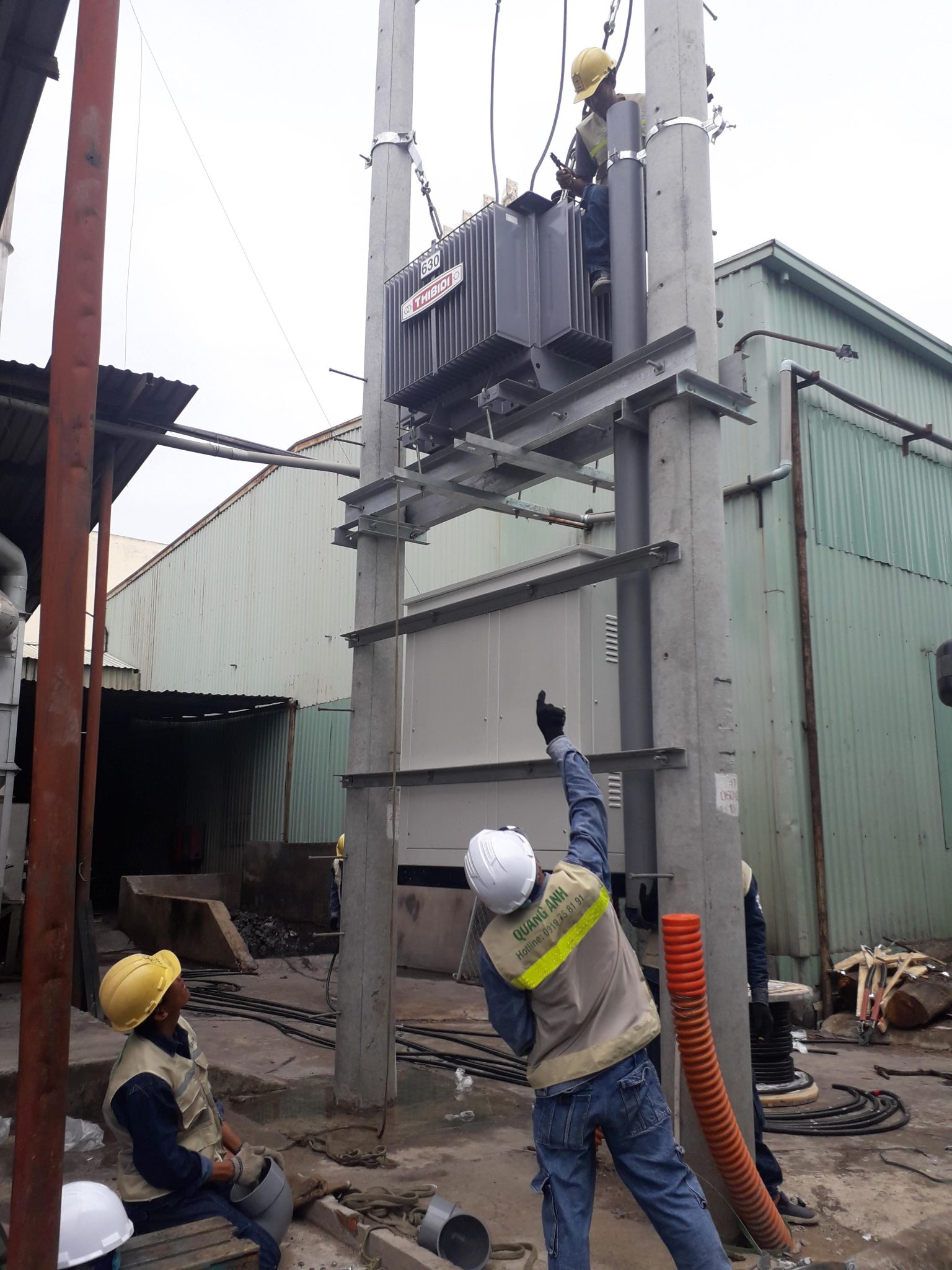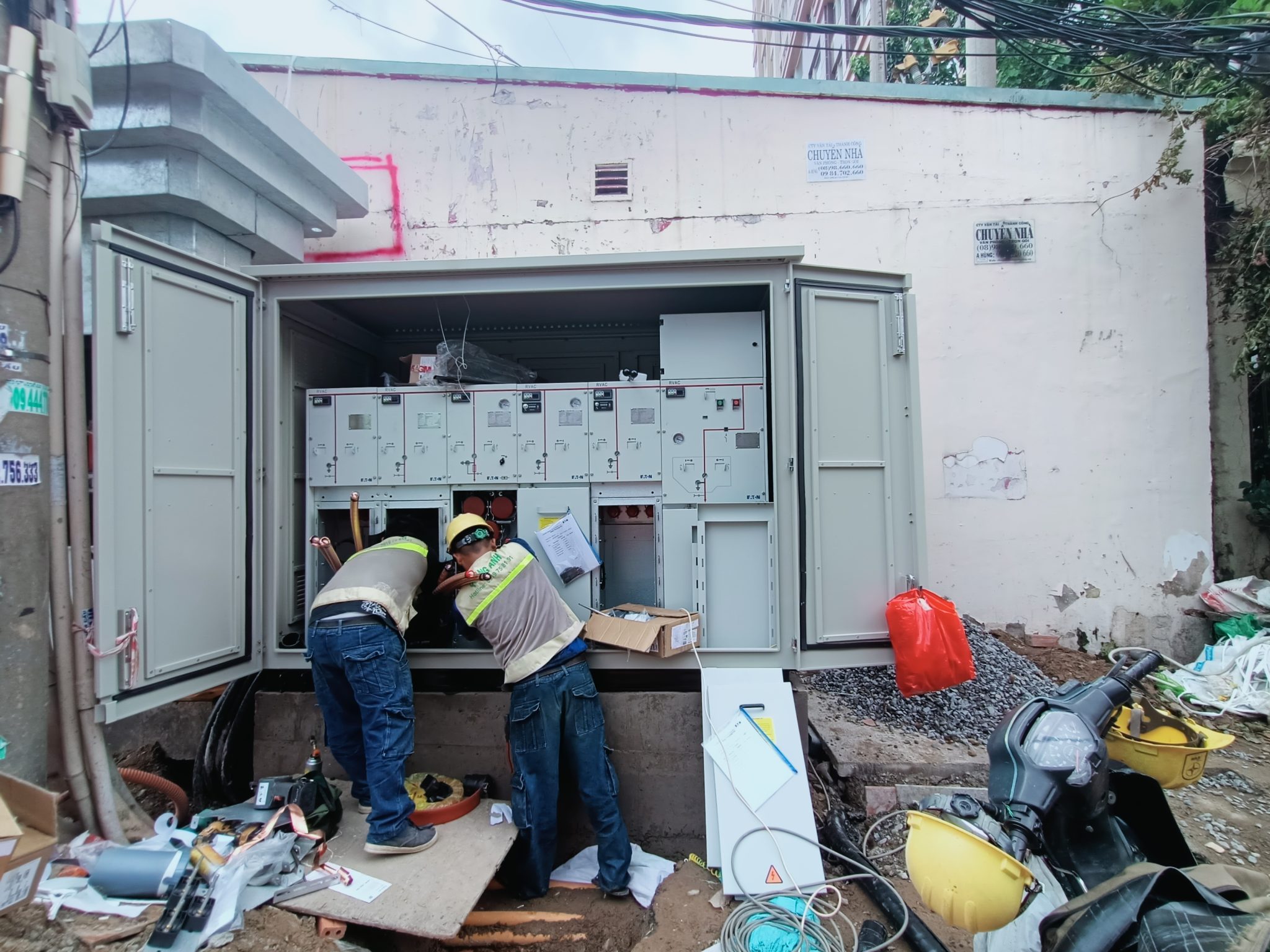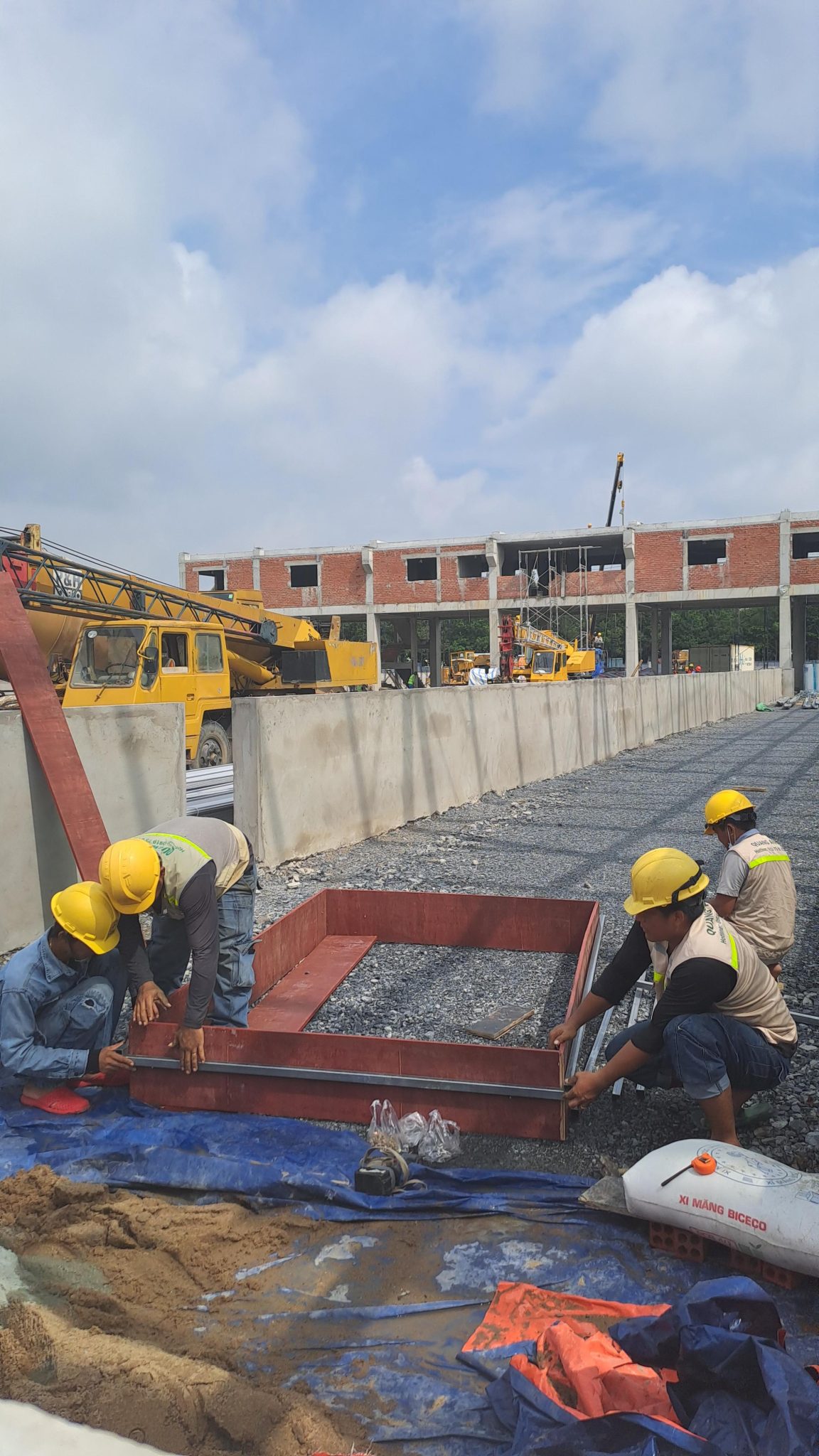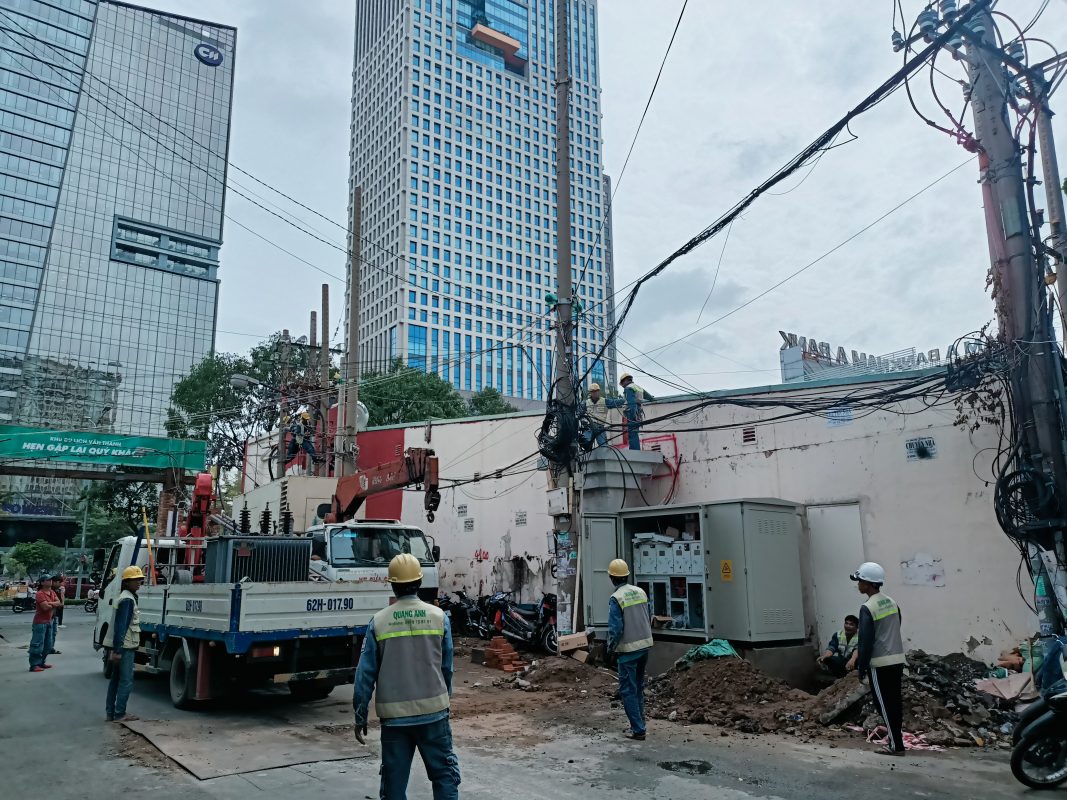The HVAC system is essential in maintaining air quality and environmental regulation, especially within high-demand manufacturing facilities such as pharmaceuticals and food processing plants.
Structure and Functionality of HVAC Systems
Manufacturing facilities’ HVAC systems comprise key components such as the Air Handling Unit (AHU) for heat exchange and clean air delivery, Condensing Unit (CDU) for air conditioning using compressors, and HEPA filter to eliminate dust and particles. These components work in unison to optimize air quality in a work environment.
HVAC System Structure
The HVAC (Heating, Ventilation, and Air Conditioning) system is a complex technical setup comprising three primary parts ensuring control over temperature, humidity, and air quality in living and working environments.
- Heating System: Featuring equipment like boilers and heat pumps, utilizing diverse fuels such as coal, oil, gas, and electricity. Heat is distributed via convection, conduction, and radiation for air warming.
- Ventilation System: Provides fresh air and circulates it while removing indoor pollutants. It can be mechanical or natural, based on architectural design.
- Air Conditioning: Includes cooling gadgets, heat exchangers, and refrigeration systems aimed at cooling air, adjusting humidity, and supplying filtered air.
Key Equipment Components
The HVAC system comprises the following main equipment:
- Air Handling Unit (AHU): Manages building air by mixing outdoor and indoor air, regulating humidity and temperature, and filtering air.
- Fan: Facilitates air circulation throughout the system and to conditioned spaces.
- Ductwork: Designed to distribute air across building areas.
- Air Filter: Eliminates dust and impurities, often using HEPA technologies.
- Heat Exchanger: Adds or removes heat from circulating air with hot or cold coils.
- Compressor and Condenser: Adjust refrigerant pressure and phase from gas to liquid in air conditioning systems.
Functionality of HVAC Systems
The following are the essential functions of an HVAC system:
- Heating: Distributes warmth to required spaces, maintaining indoor temperature during cold seasons.
- Ventilation: Provides fresh air, manages humidity, removes toxins and bacteria, ensuring clean air quality.
- Air Conditioning: Cools down indoor climates during hot seasons, controlling humidity levels and filtering air, creating a comfortable environment.
Basic Operating Principle
The operation process of the HVAC system includes:
- Intake of Fresh Air: The system draws outside air through intakes.
- Air Processing: It mixes with indoor air and filters out impurities.
- Temperature and Humidity Adjustment: Air is cooled or heated as needed.
- Air Distribution: Fans push the air through ductwork into necessary areas.
- Air Recirculation: About 70-90% of the air is recycled to conserve energy.

Core Functions of HVAC in Air Quality Control
The HVAC system in manufacturing plants can control air quality by managing temperature, humidity, and dust. It ensures a safe and standard-compliant production environment. By regulating pressure and airflow, it helps prevent pollution and supports clean standards according to GMP.
HVAC is crucial in creating a safe and pure air environment, especially in manufacturing plants. With temperature control, it can heat or cool the air as needed, ensuring comfort for people and meeting specific production and storage requirements.
An additional significant function of HVAC is humidity control. The system keeps humidity within suitable ranges, avoiding excessively dry or damp conditions that could affect human health and product storage.
Industrial ventilation, as part of the HVAC system, handles and circulates air to prevent CO2 buildup, eliminate odors, dust, and toxic gases. This also ensures an adequate oxygen supply for working spaces, enhancing overall air quality.
Moreover, HVAC utilizes advanced HEPA air filters to remove fine particles, microorganisms, and other pollutants. This function is particularly crucial in sectors requiring strict hygiene, such as pharmaceuticals and food production.
Finally, to maintain cleanroom pressure, HVAC ensures the necessary pressure differences that control airflow, preventing dust and bacteria from entering high-cleanliness areas.
Key components like the Air Handling Unit (AHU) play a vital role, drawing air from outside, cleaning, filtering dust, and controlling environmental conditions before use. The synergy of these functions delivers optimal air quality, meeting all specific health and technical requirements.

Applications of HVAC in Manufacturing Facilities
Widely applied in pharmaceutical manufacturing, the HVAC system ensures a clean and sterile production environment. In the food industry, it controls air quality, preventing contamination and ensuring consumer safety.
In modern manufacturing facilities, HVAC systems are vital for maintaining optimal production environments, enhancing product quality and safeguarding worker health. The HVAC systems find diverse applications within plants.
- Temperature and Humidity Control: The system regulates factory temperature and humidity, ensuring machinery operates smoothly, minimizing overheating risks, and providing comfortable work conditions for employees, critical for optimizing operational efficiency.
- Providing Clean Air and Removing Dust and Toxic Gases: HVAC systems use high-performance air filters like HEPA to eliminate industrial dust, microorganisms, and pollutants, ensuring air quality won’t negatively impact products and employees’ health, especially in pharmaceutical, electronic, and food sectors.
- Pressure Control and Cross-Contamination Prevention: In areas requiring sterility or sensitive production, HVAC maintains pressure differentials between zones to prevent contaminated air entry, protecting crucial manufacturing processes.
- Enhancing Operational Efficiency and Occupational Safety: HVAC systems reduce heat-related incidents, protect machinery, and mitigate toxic gas risks, ensuring plant and staff safety.
- Goods and Raw Material Storage: HVAC maintains stable temperature and humidity in storage areas for sensitive products like food and pharmaceuticals to prevent spoilage.
- Energy Usage Optimization: Modern HVAC systems are designed to optimize material and energy use, providing efficient production environments while cutting operational costs.
Overall, HVAC systems in manufacturing facilities not only provide optimal environments for products and workers but also meet the strict standards of industries such as pharmaceuticals, electronics, and food.

HVAC systems are the optimal solution for maintaining safe production environments, enhancing operational efficiency, and significantly saving energy, aligning with industry standards.
For more details on implementing standard HVAC systems for your facility, contact QuangAnhcons via Hotline: +84 9 1975 8191.
QuangAnhcons provides consulting and implementation solutions for optimal HVAC systems, ensuring high-efficiency air quality for manufacturing plants at reasonable costs, aligning with GMP standards and specific technical requirements.
[contact-form-7 id="7239967" title="Contact form 1"]


Related Posts
Tay Ninh Solar Power Planning: Technical Framework, Grid Interconnection, and Rollout Roadmap
Technical overview of solar planning in Tay Ninh: irradiation, grid capacity, permitting, design, operations, and [...]
Dec
Binh Duong Solar Planning: Regulatory Framework, Grid Interconnection, and an Implementation Roadmap for Factories and Industrial Parks
An overview of Binh Duong solar planning: legal framework, interconnection, design, risk management, and an [...]
Dec
Solar Farm Repair: O&M Workflow, IV Curve Diagnostics, Thermography, Inverter Service and Utility-Scale Safety
A utility-scale solar farm repair plan centered on O&M, IV curves, thermal imaging, inverter service, [...]
Dec
Dong Nai Solar Power Plan 2023–2025: Tri An 1,029 MW, Grid Upgrades and the DPPA Pathway
A complete look at Dong Nai’s solar power plan: Tri An 1,029 MW, irradiation potential, [...]
Nov
Quang Ngai Solar Power Plan 2024–2030: Legal Framework, Irradiance Potential, and Development Roadmap
A complete look at Quang Ngai’s solar power plan: capacity targets, irradiance (PVout), development zones, [...]
Nov
Solar Damage Assessment Services: On-Site Procedures, EL/IV/Thermography Testing & Compliance with Standards
Discover IEC/UL/NEC standard solar damage assessment processes: on-site evaluation, EL and IV curve testing, thermal [...]
Nov
Comprehensive Package Estimate for a 1800MVA 500kV Substation: Scope, Configuration 3x600MVA, Standards and Timeline Management
An overview of the 1800MVA 500kV substation estimate: construction scope, configuration 3x600MVA, GIS/AIS, SCADA, standards, [...]
Nov
Factory Electrical Systems: Comprehensive Design and Implementation Guide
Discover the detailed and safe process of factory electrical systems design and implementation. [...]
Oct
Blueprints Required for Factory Construction Permits
Discover the necessary blueprints in factory construction permit applications, from floor plans to electrical and [...]
Oct
What Are the Requirements for a Factory Construction Permit? A Comprehensive Guide
Explore the documentation and steps needed to secure a factory construction permit for streamlined project [...]
Oct
Factory Construction Permit Procedures in Vietnam: Essential Guidelines and Documents
Learn the procedures for securing a factory construction permit in Vietnam, focusing on document preparation [...]
Oct
Key Steps in the Factory Construction Process
Discover the essential steps and requirements for building factories. [...]
Oct
Comprehensive Electrical Substation Solutions by Quanganhcons
Discover the cutting-edge electrical substation solutions offered by Quanganhcons for industrial applications. [...]
Oct
Investment Costs for a 1MWp Solar Power System and Influencing Factors
Explore the investment costs for a 1MWp solar power system in Vietnam and the influencing [...]
Sep
QuangAnhcons: Elevating Wind Energy Solutions
Explore QuangAnhcons' leadership in wind energy and renewable solutions in Vietnam. [...]
Sep
Electrical Contractor Strategies at Becamex Industrial Park
Discover the strategic advancements and partnerships of the electrical contractor at Becamex Industrial Park. [...]
Sep
Investment Insights for 1MW Wind Energy in Vietnam: Costs and Opportunities
Discover the detailed analysis of costs and opportunities for investing in 1MW wind energy projects [...]
Sep
Advanced Electrical Installation Solutions by QuangAnhcons
Explore advanced electrical installation solutions and modern technology with QuangAnhcons. [...]
Sep
Enhancing Industrial Electrical Services with Quanganhcons
Discover Quanganhcons' expertise in industrial electrical services, offering efficient and sustainable power systems. [...]
Sep
Comprehensive MEP Solutions by QuangAnhcons: From Design to Maintenance Excellence
Discover optimal MEP solutions with QuangAnhcons, dedicated to excellence from design through maintenance. [...]
Sep